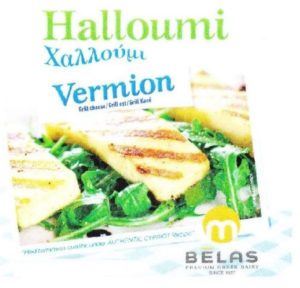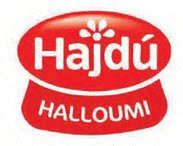Retail Scanner
Long road for Halloumi
April 2021
In a previous issue of Retail Scanner in July 2020, we discussed the CJEU decision in the long running dispute over the marks “HALLOUMI” and “BBQLOUMI”, brought by the Foundation for the Protection of the Traditional Cheese of Cyprus named Halloumi (the “Foundation”). In that decision, the CJEU ruled that the General Court was incorrect in finding that there was no likelihood of confusion between the marks and sent the case back for reassessment.
In its judgment of 20 January 2021, the General Court dismissed the Foundation’s action, holding that the EUIPO was correct in finding no likelihood of confusion between the marks. In the assessment of confusion, although the marks shared the element ‘loumi’, that element has weak inherent distinctiveness as the public will perceive it as a possible reference to halloumi cheese. The ‘BBQ’ element, as well as the figurative elements of the contested mark would relate more to the concept of a barbecue than a cheese produced in a Mediterranean environment.
The decision confirms the difficulties in enforcing a trade mark with low distinctive character, and shows that collective marks cannot enjoy a greater level of protection than a traditional mark as they are not be used as a substitute for protected designations of origin (“PDO”) and protected geographical indications (“PDI”).
General Court strikes again
It is not the only blow from the General Court for the Foundation in recent months. Recently, on the 24 March 2021, a decision issued in the invalidity proceedings against a figurative mark in the name of a Greek company Filotas Bellas & Yios. The decision does not depart from the BBQLOUMI decision, finding weak distinctive character of the Foundation’s mark, dissimilarity of a range of goods and no likelihood of confusion. In addition, the elements ‘vermion’ and ‘BELAS’ as shown in the figurative mark were sufficient to safely distinguish them. In regards to the second plea of bad faith, the General Court agreed that the Board of Appeal had not incorrectly applied the criterion for assessing bad faith and as such, that plea was also rejected.

Contrast with UK decision
The decisions of the EU General Court can be contrasted with a recent decision of the High Court in the UK before Mr Justice Smith. The Foundation opposed an application by Babel Sajt Kft applying to register a figurative mark incorporating the element “HALLOUMI” for goods in Class 29 including milk and milk products; dairy and dairy products; cheese and cheese products.

The Foundation appealed to the High Court following a decision from the UK Registry accepting the application. In the High Court decision in October 2020, the judge found for the Foundation and rejected the application.
Although the hearing officer had correctly concluded that EU collective marks had to be considered like any other traditional EU registration, the nature of such a mark required particular consideration given the use by members, rather than a single undertaking, and that this was an intrinsic difference.
The assessment of distinctiveness was also criticised for its reliance on the CJEU’s reasoning from previous cases. Whilst CJEU decisions on the application of law are binding, the question of similarity of the marks was a question of fact that needed to be considered in the context of each case.
In respect of the average consumer, the judge found errors in the Tribunal decision that consumers would only recognise the Foundation’s mark as referring to a type of cheese. This was inconsistent with the acknowledgement that the mark was registered and thus had a presumption of distinctiveness.
The judge concluded that the mark would be seen not only as a type of cheese, but also a product produced by a member of the Foundation. There was a strong likelihood of confusion that at least trade purchasers would associate the Babel mark with that of the Foundation, taking the HAJDÚ element as indicative of the member producer, when it is not. The appeal was accepted and the court set aside the earlier Tribunal decision.
PDOs/PDIs
The Foundation applied for a PDO for HALLOUMI back in 2014 in the EU, in a similar way that other cheeses have been protected, such as Parmigiano Reggiano, Gorgonzola and Roquefort. The application is still pending and the Foundation has had to rely on the collective registrations to enforce their rights. PDOs do have some benefits over such registrations however – a PDO can be enforced without a requirement to prove confusion – it can be used to prevent any misused, imitation or evocation.
The evocation element is probably the most relevant here. The term is interpreted quite broadly, and does not require that the word HALLOUMI itself is used, so could be invoked against a case such as BBQLOUMI, where the mark evokes the same product.
Key takeaway points
These recent decisions are unlikely to be the last, and further decisions involving the Foundation’s defence of its HALLOUMI name are expected in the future.
The decisions of the General Court are not surprising in that it would be contradictory if a product such as HALLOUMI was afforded the same or stronger protection in trade mark law over the PDO system.
This could also well be an area where we see divergence of the EU and UK case law as this area develops following Brexit.
This article was prepared by HGF Trade Mark Director Claire Jones.
































